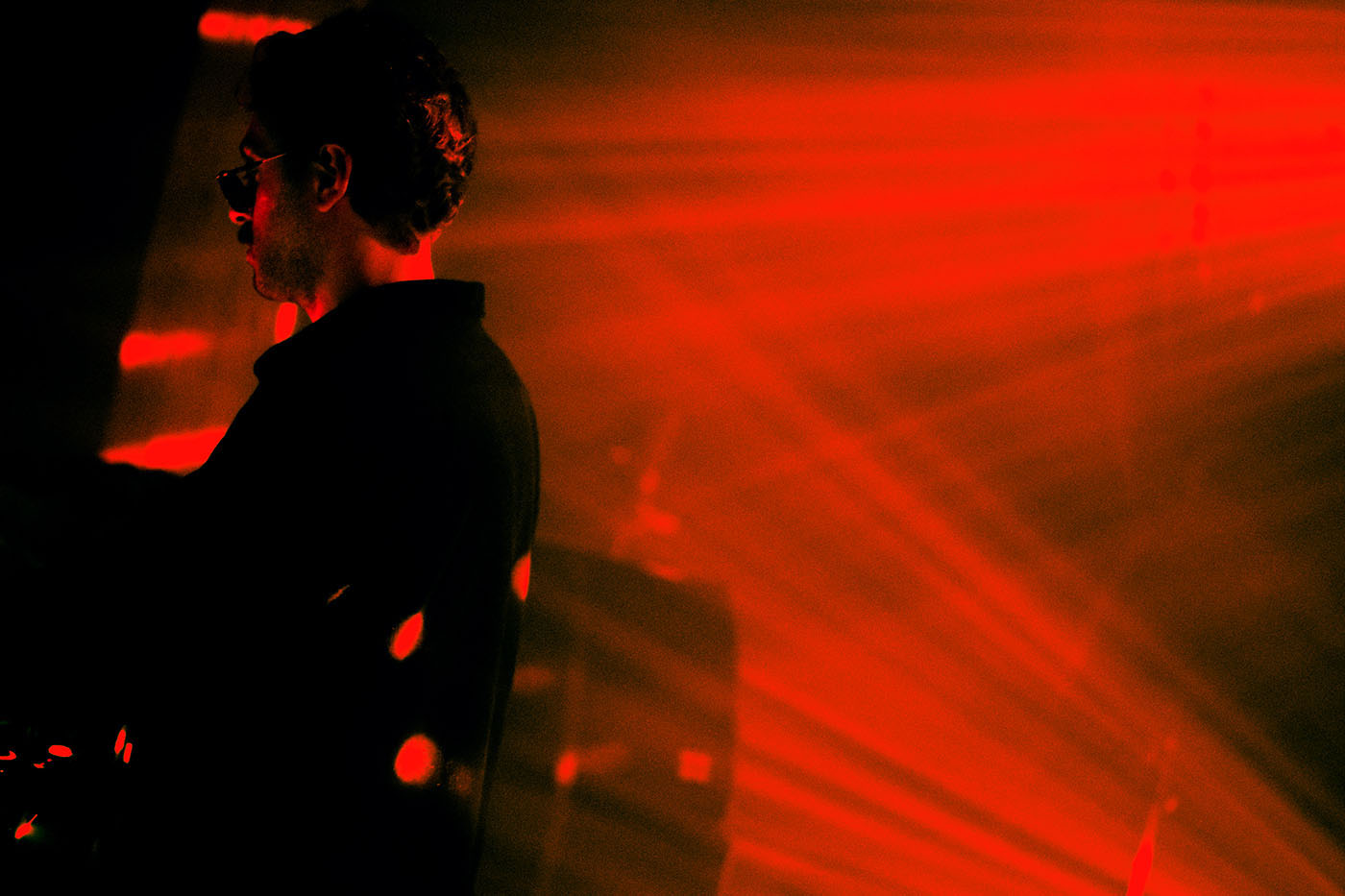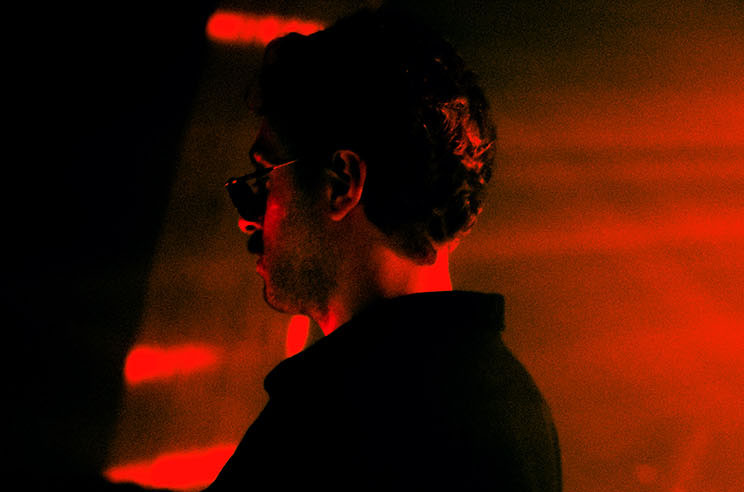
Serving up electro vibes between Beirut and Paris via his work as a DJ and album composer, Hadi Zeidan believes that music and dance can heal our wounds.
Melissa Chemam
Born in Beirut, based in Paris and often traveling between the two, Hadi Zeidan’s electronica serves up a multicultural dialogue reflective of his plural identities. His latest album is titled Meet me in Beirut. “I was born in Beirut and grew up in Beirut, so I’ll always feel Beiruti,” Zeidan tells me a few days after one of his recent DJ sets in Paris, a city for which he expresses an immense love.
As I was listening to music this fall, his seemed a kind of defiance against other melancholic tracks — music out of Iran and Britain for instance, countries in crisis that continue to make headlines. Zeidan has been through a lot, but he is one of the most optimistic musicians I’ve ever spoken to. He happens to believe that a cure to life’s hardship is in the nightlife and on the dance floor. In France, where he lives and works as a DJ, clubs have reopened and people are partying again, hence Zeidan couldn’t be happier.
Contrary to Britain, Lebanon doesn’t make the landing pages of news websites anymore, yet its crisis continues. But for Zeidan, even if it hurts and haunts him, this is even more of a reason to keep on creating and dancing, a passion that has become a real belief that guides him in life.
“I was lucky to be born in a middle-class family, people who speak several languages — Arabic, French, English, Italian…And I was able to learn music at school. Music was a part of my life early on, music from all these different languages and cultures. We also had a piano at home and my father always encouraged me to play. My mother and grandmother also played music. Then my father hired a private teacher for me, and later offered me a guitar, when, as a teenager, I got into rock ’n’roll. I then played guitar with a band at school. And music became my closest partner. Anywhere I would go, if there was a piano, you could be sure you’d find me there. Then, in Lebanon, as a whole, we’re always listening to music all the time, on the radio, in the bus, in taxis, in the streets, during festivals, at the university, etc. So, there, my influences went from pan-Arab pop stars to Armenian music, with sounds from occupied Palestine, from Cyprus, and later on, from America.”
At 18, Zeidan had the luxury to leave Lebanon to travel. He worked as a journalist, went to university, then chose to spend some time in France, “for personal reasons,” he says. He moved to Paris in 2015. “I don’t even know how to explain, looking back. I found myself in France with my guitar, and my very first friend in Paris, Edgar, was also a guitar player. Then from my new flat, I started to experiment with electronic music.”
Electronic tools for communal movements
“The democratization of music tools helped the music process; I found them easy to use. I love their ‘DIY’ elements,” he confesses. “I believe almost everyone is an artist, or wants to express themselves in some way, but they need to find means to do so. When I started electro music, the software had become abundant, and the tools responded to what I was looking for. I’ve never felt bound to one instrument only, so it opens many routes for me. This approach to music was also developing in Beirut at the same time. So, it allowed me to stay connected with my roots, while experimenting with sounds.”
Zeidan has found a home in a very iconic music venue, La Bellevilloise, in northeast Paris, where he started to perform as a DJ, and became a resident. He created his Beirut Electro Parade too, inviting other artists to perform with him, such as Dimitra Zina, Lebanese Underground, Bakisa, Boshoco, and Jad Taleb.
“The Bellevilloise opened a space for me,” Zeidan says. “I ended up being there so much, with five special nights as a DJ a year, that it directed me in many of my compositions. In 2017/18, when composing in my home studio, I always had this space in mind. Then I evolved to perform in other venues as well, like the New Morning.”
Zeidan believes that space can mold the art of music. That’s how he was inspired to launch the Beirut Electro Parade and his Paris-Beirut events. “I wanted to represent Beirut’s music scene across the globe, as it’s where I had my first musical education. Music can be a vibration, wherever you are, there’s an energy. I consider myself a dance floor artist; I love DJ-ing. To me, the best training, the best way to display music, is the dance floor. It feels more like an opera house or a theatre to me, where the music resonates with us, humans, and when it is transformed into movement. To me, when music is at its purest form, it’s with a community dancing to it. In that way, the club is to me analogous to a church: it’s a communal space, where the music becomes a secret language, and can even take a spiritual dimension for many people. And I love Paris for that. It’s a very liberated space.”
Dancing as a therapeutic form
“Music can also heal me,” Zeidan says. “It heals the melancholy of homesickness, and the wounds that Lebanon as a country continues to endure.”
These past two years, music helped him survive the lockdown, when clubs all closed and he had the cafard, the blues. “I didn’t go to a club for over a year,” he says, “but then with friends we found ways to broadcast music on Instagram and curate virtual events there.”
Between 2016 and 2022, Zeidan released four albums of his experimental electro music, including, in 2022, Meet Me in Beirut, his fourth solo record. Featuring eight tracks and a bonus cut, the album is presented as “a musical examination of scenes lived or imagined by the artist in his home city Beirut,” with compositions that span “from kraut-inspired patterns to garage rock, bellydance noise and a synth maqam solo, in a quest to emancipate Zeidan’s work from the normative genres.”
“As I left Beirut, my story became even more complex,” Zeidan explains, “and I’ve been trying to translate this complicated identity with my albums, and especially the last one. Most tracks are dance-floor oriented, with influences from my cosmopolitan identity. I love Paris but I cannot disconnect myself from my home. Yet, five years after I arrived, in 2019, I realized I felt too disconnected from Beirut and its music scene. So, I decided to invite artists from there to come here, to Paris, so I could reconnect with my lost world.”
During Covid, he made this album, which helped him to reconcile even further. “Now, I feel that 2022 has been my best year ever,” he concludes. “It’s wonderful to perform again. I’ll do it in Paris but also in Dubai and further. I’m ready to go anywhere. A few weeks ago, I saw that a Lebanese dance crew, Mayyas, won the contest of ‘America’s Got Talent,’ and I recognized my people there! I feel the world is limitless.”
Hadi Zeidan’s next event in Paris will be at La Bellevilloise, on November 18, 2022.




